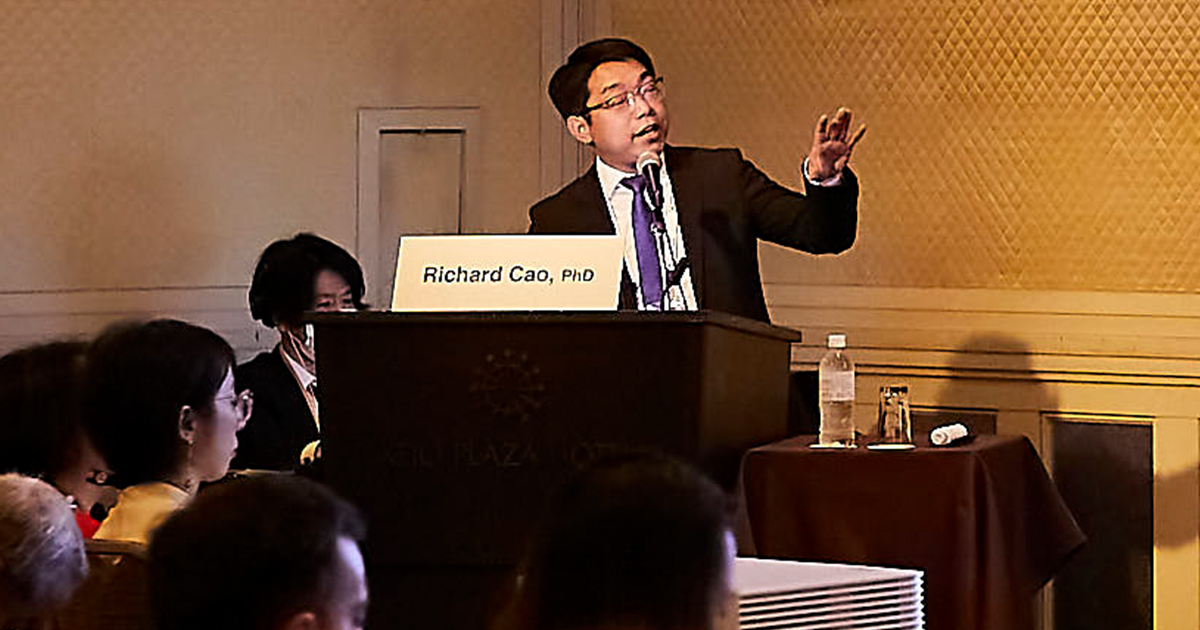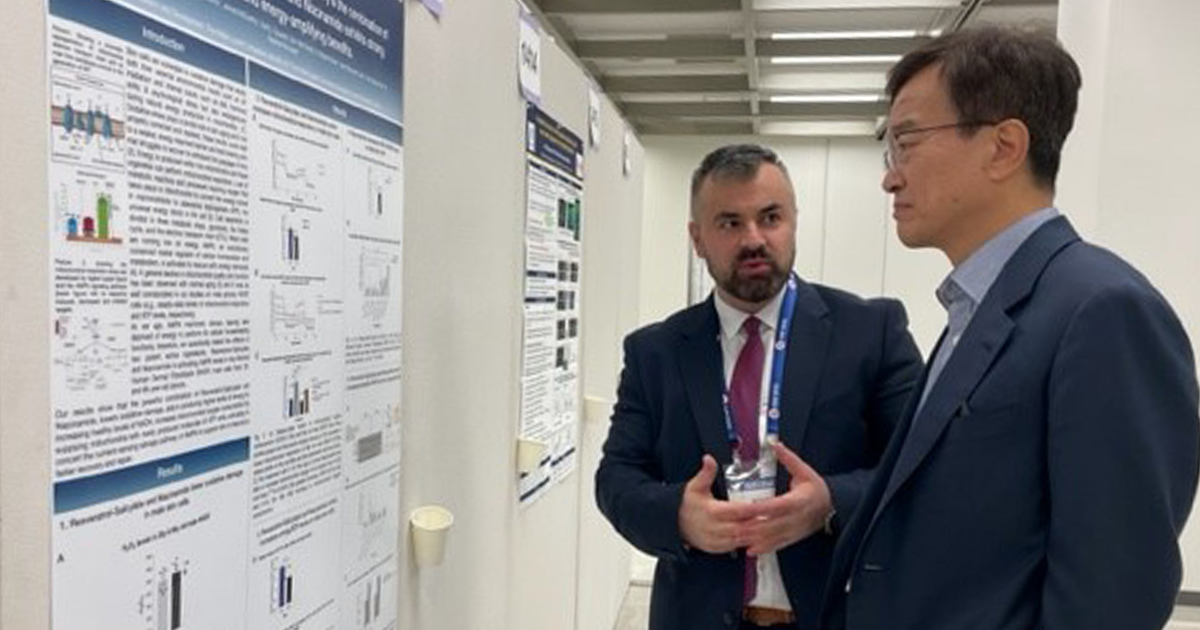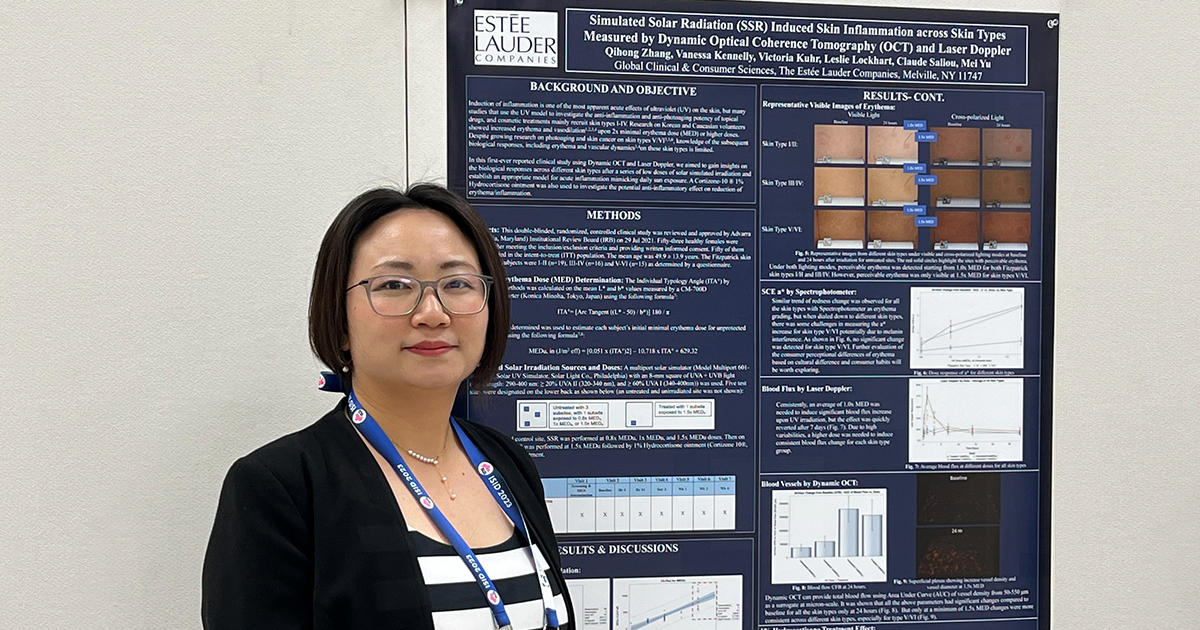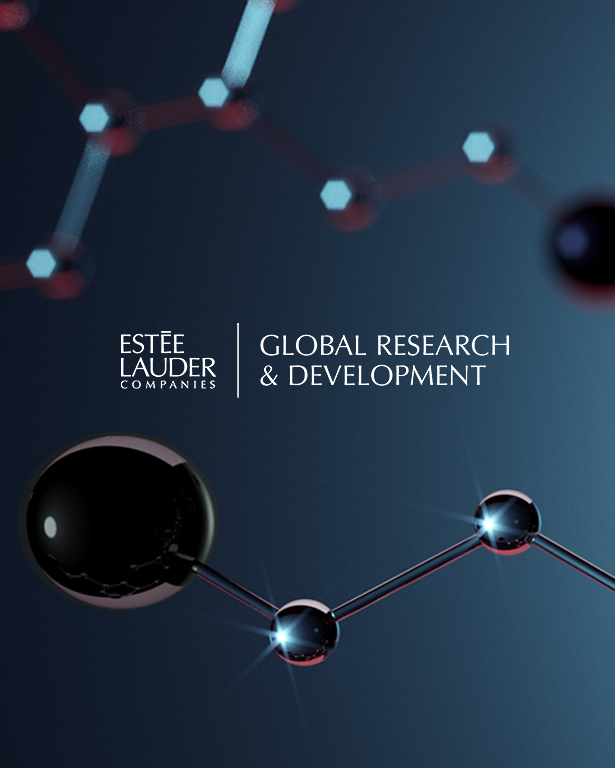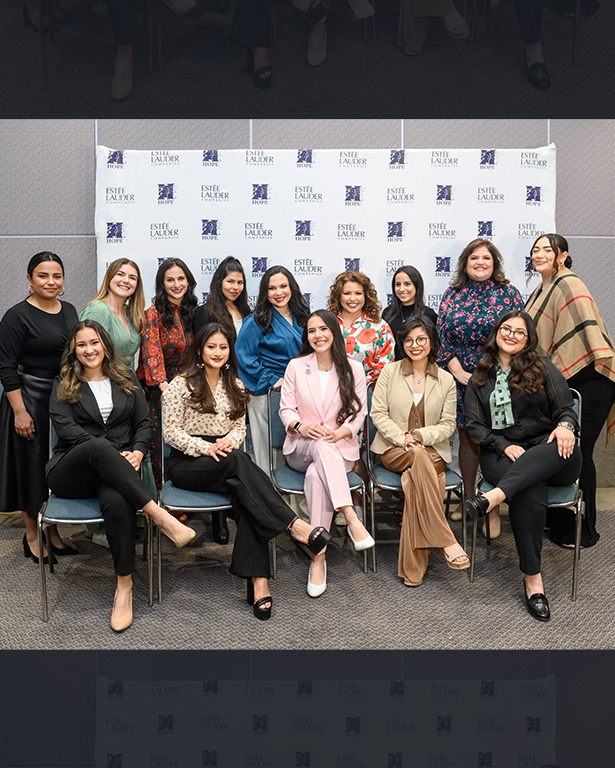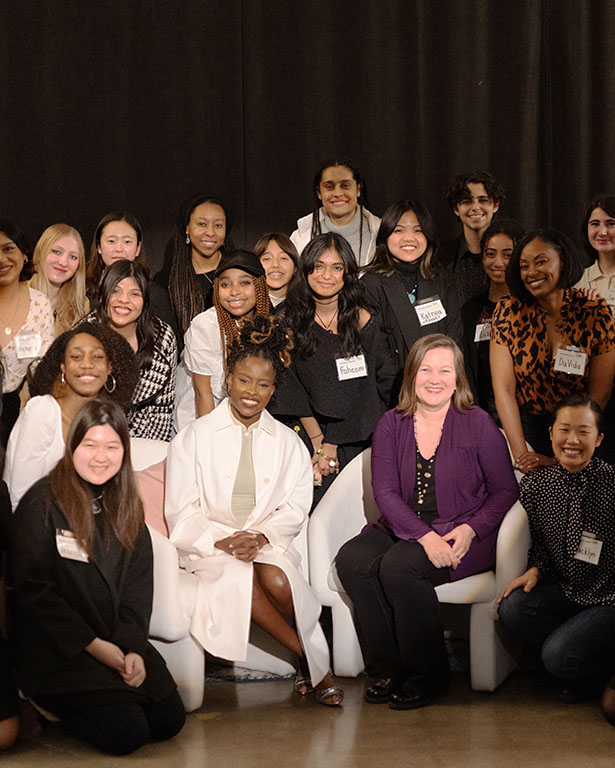Hong Kong
Inventing the Future of Beauty: ELC’s Latest Scientific Findings at ISID 2023
Company Feature, Jun 15, 2023
At the core of the Research and Development (R&D) organization at The Estée Lauder Companies (ELC) is a commitment to creating the next generation of breakthrough prestige beauty products by discovering the latest scientific findings in skin care and hair care research. As part of this commitment, our R&D teams regularly present research at leading scientific conferences around the world. Most recently, scientists from ELC and the Estée Lauder, Aveda, and Lab Series brands presented data that provides new insights in priority areas of skin care and hair care at the 2023 Meeting of the International Societies of Investigative Dermatology (ISID) in Tokyo, Japan. Hosted every 5 years, ISID brings together clinicians and researchers in the fields of dermatology and skin science from around the globe.
Skin hydration, oxidative damage, scalp aging, men’s skin care, and new clinical methods for assessing treatments for UV damage are among some of the priority areas of research for ELC that were presented by ELC’s scientists at ISID:
- Skin barrier function and approaches for improving innate hydration of the skin: At this sponsored symposium hosted by ELC, top dermatologists in Japan presented research on the skin barrier system, the new moisturizing ingredient Rice PowerTM 11α, and the hydration benefits of that ingredient in formulations. Dr. Jian (Richard) Cao, Ph.D., Senior Director, Advanced Technologies, represented ELC in the 3rd presentation to present clinical evidence on innate hydration improvement and anti-aging benefits of a formula using the new Rice PowerTM 11α ingredient. This new ingredient was created in partnership with Yuichi Miyoshi, Ph.D., of Yushin Brewer; the Estée Lauder brand; and ELC’s APAC and China R&D teams.
- Simulated solar radiation (SSR) induced skin inflammation across skin types measured by dynamic optical coherence tomography and laser doppler: In this poster, ELC’s clinical researchers performed a study to determine how the skin of people with different phototypes responds to different amounts of UV light and study the kinetics and effects of a standard treatment for inflammation. The results showed that more UV light is required to cause inflammation for people with darker skin types than those with lighter skin types. The study also has the potential to help with choosing the correct dosing of UV light for product testing and developing and evaluating treatments for different skin phototypes.
- When biology meets chemistry: change of intracellular pH resulting in cellular damage: Estée Lauder brand scientists presented research on the intracellular pH (pHi) of cells and a new extract they’ve developed that helps keep pHi in a normal range. pHi can be affected by external factors such as UV light, pollution, and blue light, resulting in cell damage, and this new extract can help protect cells from this type of damage.
- Men’s skin needs energy for proper skin recovery & the combinations of compounds A & B exhibits strong antioxidant and energy-amplifying benefits: When cells run low on energy, AMPK, an enzyme that regulates homeostasis and metabolism, is activated to help address our cells’ energy demands, and as we age, AMPK starts to decline. New research shows that a combination of resveratrol-salicylate and niacinamide lowers oxidative damage that could result in a weaker, energy-deprived skin barrier. The combination also aids in producing higher levels of energy by increasing and supplying the cells with energy-activating molecules like NADH and ATP, while also activating the nutrient-sensing salvage pathway of AMPK to support skin in faster recovery and repair.
- Single-cell RNA sequencing of different fibroblast populations cultured from female scalp reveals significant alterations to transcriptional profiles with age: Aveda scientists presented a study on 3 different types of scalp skin cells to better understand global age-related changes observed on the female scalp. The study found that the cells showed a loss of cell signature and identity with age and suggests that changes to these cells affect the ability of the scalp dermal environment to support and maintain healthy hair follicles.
- Proteomic analysis of cultured dermal papilla, dermal sheath, and dermal fibroblast cells from female scalp highlights alterations in the cell populations with increasing age: A second Aveda poster presentation compared the proteomic profile of primary cultures of dermal fibroblasts, dermal sheath, and dermal papilla cells from female donors of different age groups. The research showed significant, differential differences in protein expression related to age and indicates that their identity is significantly altered with age.
- In vitro/in vivo proven superior hydration benefits of Rice Power™ #11α and dipotassium glycyrrhizinate containing formulations: Building on Dr. Cao’s presentation during the sponsored symposium, this research showed additional data on innate hydration improvement and anti-aging benefits of a formula leveraging rice fermentation technology. The results demonstrated that formulations using the technology could boost hyaluronic acid (HA) production and protect HA from degradation. Clinically, the treatments not only alleviated skin dryness, but also exhibited strong benefits toward anti-aging.
"At ELC, we continue to take a multidisciplinary scientific approach to skin and hair care, utilizing knowledge and advancements from across industries and the scientific community,” said Dr. Bhushan Hardas, Senior Vice President, Advanced Technologies. “Our commitment to new science spans biological, material, and chemical research, as well as rigorous safety, in vitro and clinical testing in the development of cutting-edge technologies."
By working with leaders across dermatology and skin science, presenting at leading events such as ISID, and publishing research in peer-reviewed journals, ELC remains at the forefront of innovation and science. As a global leader in understanding the environmental, biological, and lifestyle factors that impact our skin and hair, our R&D teams enable our brands to benefit from the latest scientific breakthroughs and deliver transformative, locally-relevant products that delight our discerning consumers around the world.
